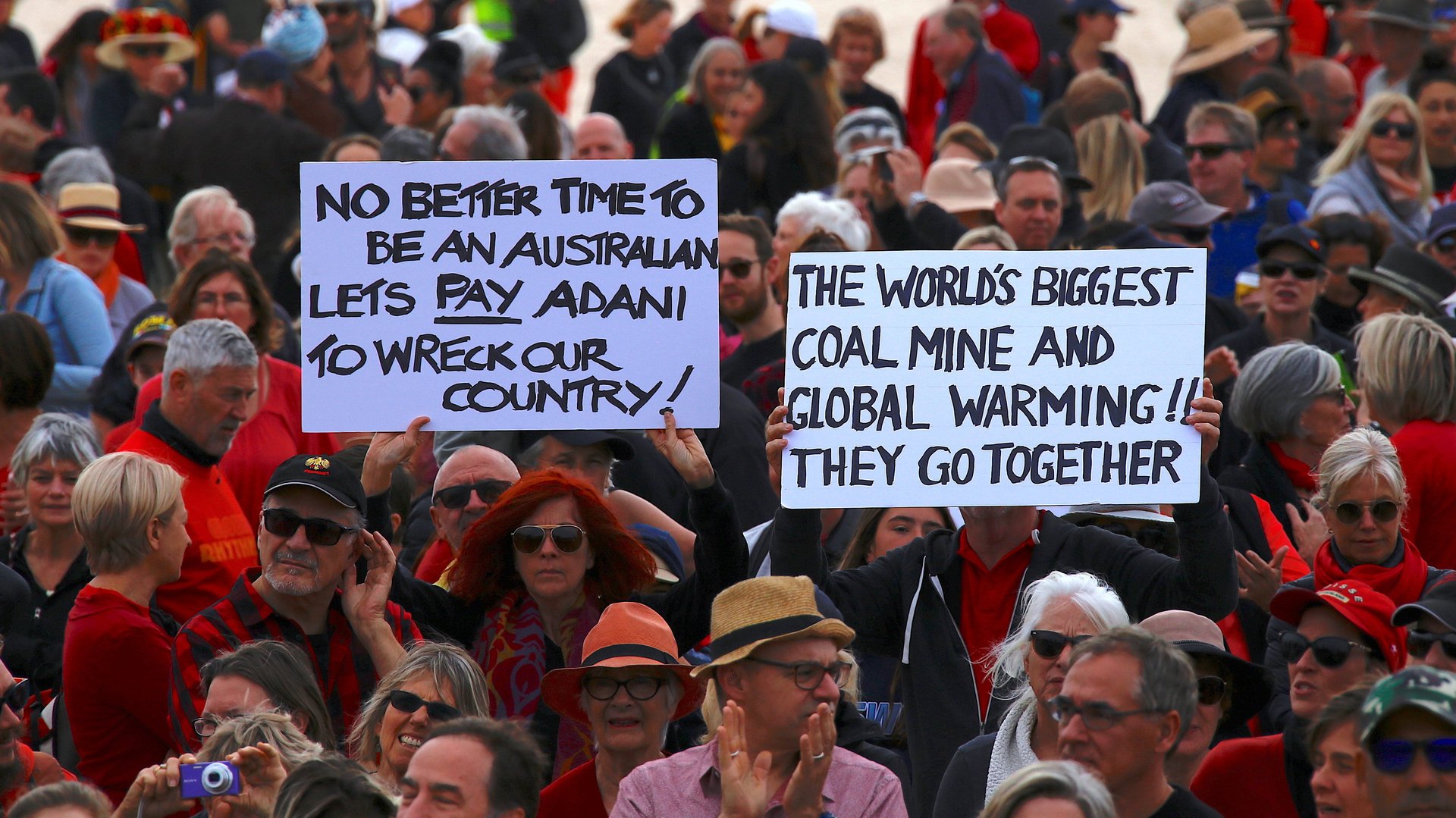How Adani Ports’ offshore business in Australia has landed it in trouble
Adani Ports and Special Economic Zone (APSEZ), owned by India’s richest person Gautam Adani, is making headlines for the wrong reasons, yet again.


Adani Ports and Special Economic Zone (APSEZ), owned by India’s richest person Gautam Adani, is making headlines for the wrong reasons, yet again.
In early trade yesterday (Nov.29), its share price fell nearly 5%—to as low as 682.65 rupees ($9.08) from Rs717.65 at the previous close. This was in reaction to the company’s removal from some of Morgan Stanley Capital International’s (MSCI) climate change indices over the weekend.
The reason for MSCI’s decision is cited to be “severe” repercussions on the environment and local indigenous communities due to APSEZ’s link to the controversial Carmichael thermal coal project in Australia.
APSEZ, however, stated on Nov. 28 that MSCI’s move was “disappointing” and that the company had no stake in the Carmichael coal project. It also accused the equity index firm of not incorporating facts and disclosures made by the company and, instead, looking to “subvert” its green initiatives and “tarnish” its reputation.
This exclusion from MSCI could hurt the APSEZ stock since the Adani group company has the largest free-float—shares held by non-promoters—which could now lose their attractiveness.
“Those benchmarking their portfolio with the indices would (now) be exiting,” said Mumbai-based independent market analyst Ambareesh Baliga.
What is the problem with the Carmichael coal project?
Carmichael, a thermal coal mine in Central Queensland, Australia, was greenlighted in 2019. The mine is owned by the Adani Group and is staunchly opposed by Australian climate activists.
The project, they say, will increase shipping traffic through the Great Barrier Reef heritage area and add emit around 4.7 billion tonnes of carbon over its 60-year lifespan.
Independent scientists and federal government agencies have also identified fundamental flaws in APSEZ’s groundwater modelling. This includes the use of highly selective data that differs from on-site testing, according to Christian Slattery, senior campaigner with the Australian Conservation Foundation.
The company, though, has affirmed its commitment to environmental obligations (pdf).
Nevertheless, several companies like Samsung Securities and Allianz have pulled out financing support for Carmichael. Global banks such as Goldman Sachs, HSBC, and JPMorgan Chase have ruled themselves out, too, specifically referring to Adani’s mining activities.
What lies ahead for Adani Ports’ stocks?
The Adani Group was already facing heat over expensive valuations and mounting debt.
In June, the National Securities Depository froze the accounts of three foreign funds over insufficient disclosure of information on their ownership in the group.
“Despite the management rebuttal, the stocks didn’t get back into the earlier orbit. So now the MSCI indices exclusion would be another reason for weakness in Adani Ports,” Baliga said.
The MSCI’s decision, meanwhile, shows the growing significance of climate change metrics. “Progressively, institutional investors are aligning towards ESG (environmental, social, and governance). Thus, an ESG index would form part of their benchmarking,” Baliga added.